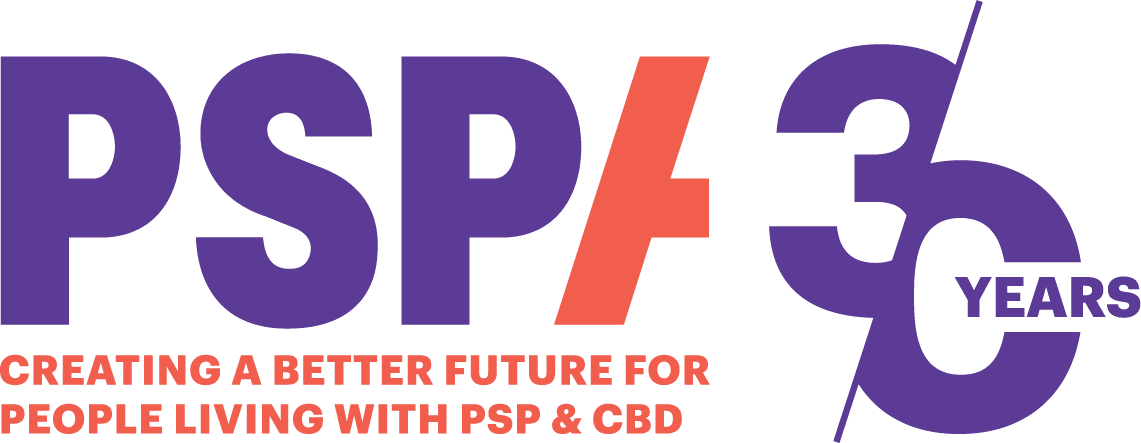Karen Back’s husband David was diagnosed with PSP in 2015. Here Karen shares how her family continued to live life to the full, despite the challenges PSP brought.
For 27 years, David ran a successful architectural business in London, staying in the city during the week and returning home to the Isle of Wight at weekends.
In 2012 I noticed some personality changes in David. He had always been charismatic and engaging, full of energy and ideas and a wonderful sense of humour. But he became very serious, quite intense, less communicative, often distracted and extremely tired. As the business was struggling he was under immense pressure at work and I thought these traits to be the result of this. Having already travelled a lot with the children I suggested that we rented out our house and take a sabbatical.
Zambia was our first-choice destination as I had grown up there and worked in the safari business and David had worked as a safari guide in the 1980’s. We got married in the South Luangwa National Park in 2001 and were excited to return to Zambia to manage Mwaleshi Camp in the North Luangwa National Park for three months in 2013.
Whilst we were away David had a couple of falls but we put it down to the uneven terrain. It wasn’t until he came back from one particular walking safari saying that he couldn’t look up to see the vultures circling above that we wondered if something was wrong.
In May 2014 David had an unexplained fall on a business trip in Melbourne, Australia. Then during the summer, David had a terrible fall walking home from an event, he bent down to do up his shoe laces and fell heavily on his face resulting in a broken nose and an overnight stay in hospital.
During a follow up appointment our GP noted David would not have fallen like that had there not be something wrong. David was referred to a neurologist in Southampton but we also had a private consultation at the National Hospital for Neurology and Neuroscience in London. After several tests, scans and a long process of elimination, David received his PSP diagnosis in August 2015.
Unfortunately, by that time our business was beyond saving and we placed it into liquidation in November. This was a very distressing time so David managed to get a week away in Zambia with his sister, Angela, and some close friends, to walk along the Mwaleshi River, something David had always wanted to do.
Navigating our way through PIP and ESA was complicated and time consuming. There was endless communication with HMRC and several appointments with DWP to establish David’s correct entitlement to any benefits. We also took advice to update our Wills and put in place Power of Attorney documentation for finances, health and wellbeing.
Alongside this David started attending regular appointments with Speech and Language, Physio and Eye specialists. We attended an informative PSPA Family and Friends Day in Guildford and later on a local PSPA group was set up on the Isle of Wight. This group provided invaluable support to individuals and families and David enjoyed going. The wonderful families we met remain close to our hearts and I still attend the monthly meetings.
Initially David’s symptoms did not progress quickly with just the odd cough and splutter, slightly slurred speech and unsteadiness on his feet. He started walking with a stick, later progressed to a walker and latterly to a wheelchair.
The children initially found his illness embarrassing but as they got older and his illness progressed they quickly adapted to new situations. Georgia made him laugh using his walking stick as a prop in her tap dance. Daniel could imitate his new voice, laugh and certain mannerisms to a tee! Meal times were often stressful as we still ate at the table as a family despite the possibility of being showered in water or wine! The children would build a barrier of kitchen roll around their plates to avoid any splutters which David always found very amusing. As the PSP progressed the choking episodes became more alarming however and we were all on high alert.
On the island we are fortunate to have a facility called the John Cheverton Centre, which is part of the Mountbatten Hospice providing day services and out-patient care, and David attended every Thursday. Early on in our PSP journey someone kindly said that as PSP was life limiting, seven years on average from onset, we should use our time to make more memories with our young family.
This did not require much effort as we continued to live life to the full, taking David everywhere with us, despite the challenges. In September 2016 we organised an impromptu trip to Brazil to see jaguars in the Pantanal, the Iguazu Falls and attended the Paralympics in Rio.
David was still very mobile at that point though a bit unsteady on his feet. His enthusiasm for wildlife and his great sense of humour prevailed but he opted out of socialising with other guests which was uncharacteristic and sad to see.
In November 2016 David travelled to India with his sister and two close friends visiting David’s favourite places including Agra and Ranthambore NP.
In April 2017, we did a family trip to the Kenya coast together with my parents. By this time David could not walk unaccompanied and he had two alarming falls whilst we were away.
On our return from Kenya we were lucky enough to re-home an ex ability dog from Canine Partners. It was love at first sight with Bentley, a beautiful golden retriever, highly intelligent with a wonderful temperament and impeccable manners! He would pick up dropped items up for David, bring him his hat and glasses, open and close drawers and cupboards to select clothing! Mostly however he provided great company and comfort not only to David but to us all as he continues to do every day.
Having already signed up to take part in the PROSPECT study, David also became a participant in the PASSPORT study, a double-blind placebo drug trial, in April 2018.
In addition, David and I joined the Queen Square Brain Bank to donate brain tissue for neurological disorder research. In the days before he died the hospice liaised with Queen Square to make suitable arrangements and the procedure took place on the day he died. I was informed and it is some comfort that his wishes were realised.
In October 2018, David had a PEG fitted and whilst it was precautionary at that stage it was still a turning point for us and I did struggle initially. We tried to keep David eating the things he liked, at Christmas even blending his turkey dinner, ensuring he still had ice cream with Tia Maria and the occasional sip of red wine.
By Christmas it was apparent there was a more defined decline in David’s condition and it was deteriorating more rapidly. His cognition worsened, he lost the dexterity in his hands and he struggled with his eyesight, which was the most frustrating part for him. In the last year he listened to audio books and the radio preferring to lie down to do so.
A riser recliner chair arrived in December followed by a hospital bed in January 2019. Our family bed was packed away and I slept on a pull-out sofa bed beside him, later taking it in turns with Georgia. Georgia was very hands on with his care and took great pride in giving him the perfect wet shave.
Daniel’s role was more physical. Being taller and stronger, he was able to assist David to and from the bedroom. Daniel was also the one to remain calm in difficult situations including some bad falls.
Daniel, Georgia and I take great comfort we managed to keep David safe and happy at home with us. The generous Disability Grant from the Isle of Wight Council in 2018 enabled us to install an external lift, a smaller internal lift and a fully disabled bathroom which made a huge difference to David’s independence.
In March 2019, David developed a cough and several doctors attended to check for a potential chest infection. This led to conversations about his future care needs and end of life although I had not realised at this point how far advanced his condition was. As his speech was virtually non-existent I was relieved to establish he wanted his ashes scattered at Mwaleshi in Zambia where we had spent our sabbatical.
Two weeks before he died David was admitted to the hospice initially for respite care. Despite his obvious weakness I was certain he would recover and we were looking forward to friends from Zambia coming over to stay. However he was kept in for longer so we spent a lot of time with David at the hospice. He couldn’t talk much but enjoyed the reminiscing with nods and thumbs up signals.
David was due to come home on the Thursday but when we arrived at Mountbatten it was apparent things were not good. Despite this I still expected David to come home. I thought as it was his first chest infection he would get through it. However, by the next day it was apparent this might not be the case and Daniel, Georgia and Bentley joined me at the hospice where we stayed for the next week, camped out in his room.
David’s sister also stayed and we all talked to him, played music and stayed with him throughout. He was not able to communicate other than the odd hand squeeze and thumbs up. It was a very sad but precious time and one we treasure. We spoke to him about letting go when the time was right.
Having not ever witnessed anyone in their last few days, it was an incredible experience and not one to be feared. We were all asleep in his room the night he died but both Angela and I woke suddenly at the same time and we knew something had changed. I woke Daniel and Georgia and we stood around him whilst he took his last breathes and we hugged him whilst he was still warm.
David’s funeral took place a few weeks later at our local St Boniface Church. It was attended by over 200 people and three of his friends gave wonderful tributes from different aspects of his life. There were many tears but also a lot of laughter. He would have loved it!
A few months later we buried some of David’s ashes at our local church and as per his wishes, in October we scattered his remaining ashes under our favourite acacia tree opposite Mwaleshi Camp in Zambia.
There have been many obituaries and articles written in publications such as Wanderlust magazine, The County Press, The Horn (Save the Rhino), Wildlife Matters (David Shepherd Wildlife Foundation) and Connect the Mountbatten magazine. David had supported many conservation projects and raised £130,000 through his Horny@50 initiative. A male black rhino calf was named in his honour and the Luangwa Football Initiative he started in 2016 (after diagnosis!) continues in Zambia to date.
Although he is no longer with us, David is still very much part of our lives. We talk about him often, look at photos and share wonderful memories. A clever lady made Memory Rhinos for us from David’s shirts as well as Memory beach blankets using favourite t-shirts and fabrics.
David still influences family life and is ever present. I believe his legacy will live on through Daniel and Georgia and this long challenging PSP journey has shaped their lives positively. Both are interested in conservation and continue to fundraise for PSP and the hospice.

